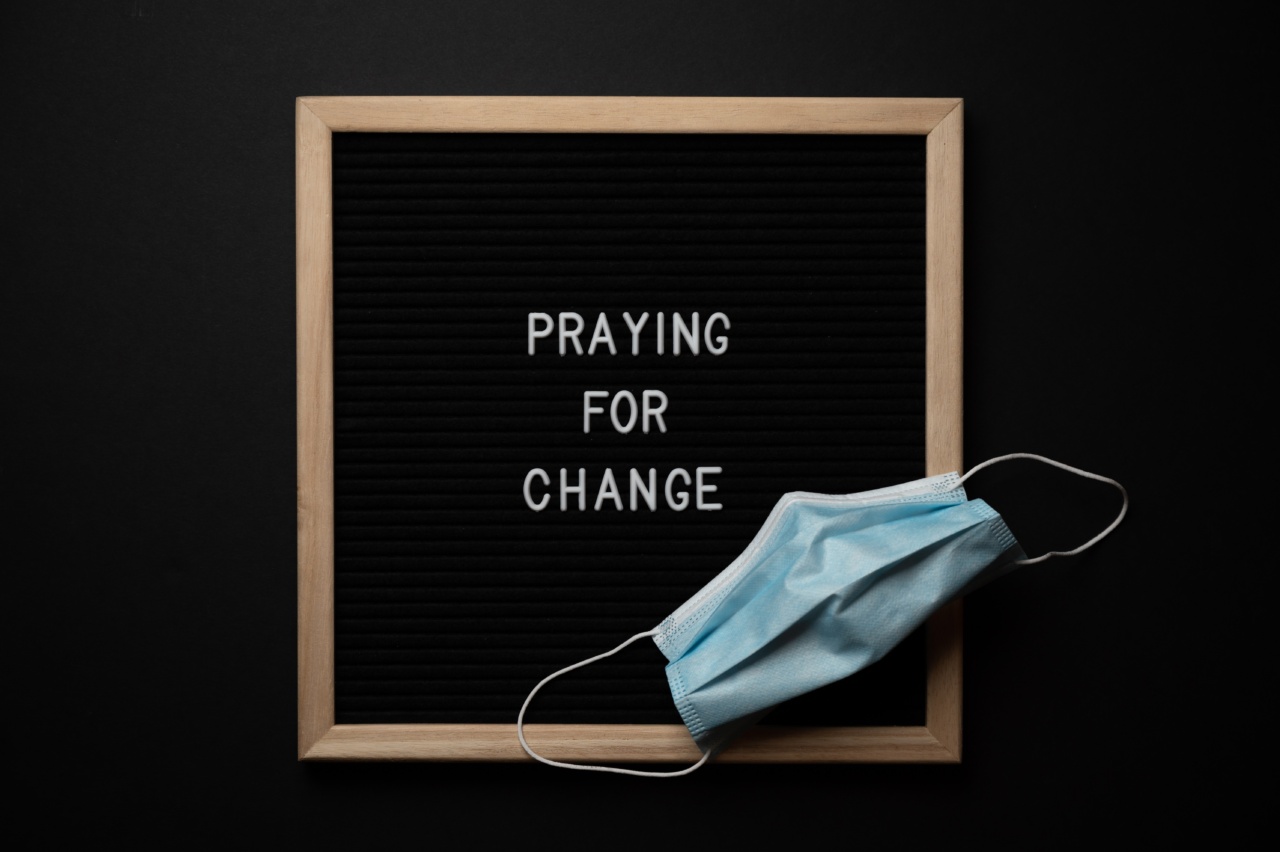Schizophrenia is a complex and chronic mental disorder characterized by a range of symptoms including hallucinations, delusions, disorganized thinking, and social withdrawal.
It affects approximately 1% of the global population and significantly impacts individual functioning and quality of life. Treatment for schizophrenia typically involves a combination of psychotherapy and medication.
Psychotherapy for Schizophrenia
Psychotherapy, also known as talk therapy, is a form of treatment that involves interactions between a trained therapist and an individual with schizophrenia.
The goal of psychotherapy is to help individuals understand and manage their symptoms, cope with stressors, and improve their overall functioning. There are various types of psychotherapy that have been shown to be effective in treating schizophrenia.
Cognitive Behavioral Therapy (CBT)
Cognitive Behavioral Therapy (CBT) is a widely-used psychotherapeutic approach that focuses on changing patterns of thinking and behavior. It aims to identify and challenge distorted beliefs and thoughts that contribute to symptoms of schizophrenia.
CBT helps individuals develop coping strategies, problem-solving skills, and enhance social functioning. Numerous studies have demonstrated the efficacy of CBT in reducing symptoms and improving overall outcomes in individuals with schizophrenia.
Family Therapy
Family therapy involves working with the individual with schizophrenia and their family members to improve communication, reduce stress, and enhance their understanding of the disorder.
It aims to provide support, education, and skills training to family members, which in turn can improve the overall well-being of the individual and reduce the likelihood of relapse. Family therapy has been shown to be effective in improving medication adherence, reducing hospitalizations, and increasing social functioning in individuals with schizophrenia.
Social Skills Training
Social skills training is a type of psychotherapy that helps individuals with schizophrenia develop and improve their social skills and interactions.
It focuses on enhancing communication, problem-solving, and assertiveness skills, as well as providing opportunities for individuals to practice these skills in real-life situations. Social skills training has been found to reduce negative symptoms, improve social functioning, and enhance overall quality of life in individuals with schizophrenia.
Medication for Schizophrenia
Medication is a cornerstone of treatment for schizophrenia. Antipsychotic medications are commonly prescribed to individuals with schizophrenia to manage symptoms and prevent relapse.
These medications help normalize neurotransmitter imbalances in the brain associated with the disorder. Antipsychotics can be classified into two broad categories: first-generation (typical) antipsychotics and second-generation (atypical) antipsychotics.
First-Generation Antipsychotics
First-generation antipsychotics, also known as typical antipsychotics, were the first medications developed to treat schizophrenia. They work primarily by blocking dopamine receptors in the brain.
Examples of first-generation antipsychotics include chlorpromazine and haloperidol. While they are effective in reducing positive symptoms such as hallucinations and delusions, they often have significant side effects such as extrapyramidal symptoms, sedation, and movement disorders.
Second-Generation Antipsychotics
Second-generation antipsychotics, also known as atypical antipsychotics, were developed as an alternative to first-generation antipsychotics. They also block dopamine receptors, but they have a higher affinity for serotonin receptors as well.
Examples of second-generation antipsychotics include clozapine, risperidone, and olanzapine. Atypical antipsychotics are generally better tolerated and have a reduced risk of extrapyramidal symptoms. They are effective in managing both positive and negative symptoms of schizophrenia.
Comparing Psychotherapy and Medication
Both psychotherapy and medication have been shown to be effective in treating schizophrenia, but the question of their equal efficacy is a topic of ongoing debate.
Evidence for Psychotherapy
A meta-analysis conducted by Pitschel-Walz et al. (2019) examined the effectiveness of psychotherapy in treating schizophrenia.
The analysis included 65 studies and found that psychotherapy had a moderate effect in reducing overall symptoms and improving functioning in individuals with schizophrenia. Cognitive Behavioral Therapy (CBT) and family therapy were found to be particularly effective interventions.
Evidence for Medication
A large number of randomized controlled trials support the efficacy of antipsychotic medication in reducing positive symptoms of schizophrenia. Medication has been shown to significantly reduce hallucinations, delusions, and disorganized thinking.
The Clinical Antipsychotic Trials of Intervention Effectiveness (CATIE) study, which compared the effectiveness of different antipsychotic medications, found that the majority of participants experienced significant symptom reduction with the use of medication.
Combining Psychotherapy and Medication
There is a growing body of evidence supporting the combination of psychotherapy and medication in the treatment of schizophrenia.
Multiple studies have shown that the addition of psychotherapy to medication leads to better outcomes compared to medication alone. Combining psychotherapy and medication can further reduce symptoms, improve social functioning, enhance medication adherence, and reduce the risk of relapse.
Factors Influencing Treatment Choice
The choice between psychotherapy and medication, or their combination, depends on several factors, including individual preferences, symptom severity, treatment goals, and available resources.
Some individuals may prefer psychotherapy as a primary treatment modality, while others may opt for medication due to the quick symptom relief it offers. In many cases, a combination of both approaches is recommended, taking into account the specific needs and preferences of each individual.
Conclusion
In conclusion, psychotherapy and medication are two equally important treatment modalities for individuals with schizophrenia.
Psychotherapy, such as Cognitive Behavioral Therapy and family therapy, helps individuals develop coping strategies, improve social functioning, and manage symptoms. Medication, including first-generation and second-generation antipsychotics, effectively reduces positive symptoms of schizophrenia. Combining psychotherapy and medication has been shown to result in better outcomes than either treatment alone.
The choice of treatment depends on individual factors and should be tailored to the specific needs and preferences of the individual with schizophrenia.































